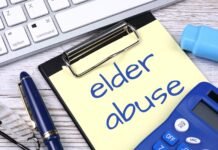Table of Contents
The Rising Tide of Elder Abuse: Understanding the Crisis
Defining Elder Abuse: What It Really Means
Elder abuse is a multifaceted issue that encompasses various forms of harm inflicted upon older adults, often by those in positions of trust. The categories of abuse include physical abuse, emotional or psychological abuse, sexual abuse, neglect, and financial exploitation. Physical abuse is the infliction of pain or injury, while emotional abuse refers to actions that cause mental distress, such as verbal insults or threats. Neglect, on the other hand, involves a failure to fulfill obligations to provide care, leading to deterioration in the senior’s health and wellbeing. Financial exploitation, perhaps the most insidious form, occurs when someone unlawfully or inappropriately uses the funds, property, or resources of an older adult for their benefit. Defining elder abuse accurately is critical in raising awareness and mobilizing the necessary legal mechanisms to protect our seniors from maltreatment.
Statistics that Shock: The Scale of the Problem
The scale of elder abuse is staggering, with studies indicating that approximately one in ten seniors experience some form of abuse each year. Many experts believe that this number could be significantly higher due to underreporting, as victims often fear retaliation, feel ashamed, or are unable to seek help. According to the National Center on Elder Abuse, about 5 million older adults in the United States face abuse every year, translating to $36.5 billion lost annually due to financial exploitation alone. Alarmingly, older adults who are abused may have a much higher risk of developing health issues, experiencing injuries, or even dying prematurely. These harrowing statistics are a call to action for families, communities, and policymakers alike to take this issues seriously and strive to achieve significant reforms in the care and protection of our elder population.
The Hidden Faces: Who Are the Most Vulnerable Seniors?
While elder abuse can affect any senior, certain groups are particularly vulnerable. Factors such as mental and physical health, social isolation, and dependency on caregivers play a crucial role in determining a senior’s risk level. For instance, seniors with cognitive impairments, such as dementia or Alzheimer’s disease, are often targets due to their diminished capacity to report or resist abuse. Additionally, elderly individuals living in long-term care facilities are at an increased risk due to the often inadequate staffing levels and lack of oversight. Emotional and psychological elements are also significant; many seniors who have lost partners or close family members may find themselves alone and vulnerable to exploitation. Understanding these layers helps in developing targeted strategies to protect the most at-risk populations.
Legal Warriors: The Vital Role of Elderly Abuse Lawyers
What Makes an Elderly Abuse Lawyer Essential in These Cases?
Elderly abuse lawyers play an essential role in ensuring that justice is served for the victims of abuse, providing a key link between the legal system and vulnerable seniors. These specialized attorneys understand the complex landscape of elder law and are equipped to navigate the nuances of cases involving elderly clients. They advocate for the rights and dignity of seniors, often facing various challenges, such as the potential intimidation by caregivers or family members who may be implicated in abuse. Moreover, an elderly abuse lawyer is not just an advocate but also an ally, helping seniors to reclaim their voices and stand against their perpetrators. Their experience can make a significant difference in the legal proceedings, whether that entails pursuing civil litigation against nursing homes, assisted living facilities, or individual caregivers.
How Specialized Knowledge Translates to Effective Advocacy
What sets elderly abuse lawyers apart is their in-depth understanding of both substantive law and procedural nuances related to elder law cases. They are adept at identifying the signs of abuse, understanding relevant statutes, and applying precedent-setting cases to advocate effectively for their clients. For instance, an experienced lawyer will know how to gather evidence, including medical records, financial documents, and witness statements, while being mindful of maintaining the dignity of the victim. Additionally, they have the tools to work across various systems, including healthcare and social services, thus ensuring all angles are covered when pursuing justice. Their specialized training equips them to work with mental health professionals, forensic experts, and social workers to build a robust case that best represents the senior’s interests.
Success Stories: Attorneys Who Have Made a Difference
Across the country, countless attorneys have made significant strides in the fight against elder abuse. One notable example is the case of a 78-year-old woman who suffered traumatic injuries after being denied proper care in a skilled nursing facility. Her elderly abuse lawyer not only secured her a substantial financial settlement but also pushed for systemic changes within the facility to improve care standards. Such stories serve as a beacon of hope, illustrating that with committed legal advocacy, victims can regain their autonomy and dignity. These successes highlight not only the importance of specialized legal knowledge but also the transformational impact that dedicated attorneys can have on the lives of elderly victims of abuse.
Recognizing the Signs: How to Spot Elder Abuse
Physical Indicators: More Than Meets the Eye
Recognizing the physical signs of elder abuse is often the first step toward intervention. Common indicators include unexplained bruises, fractures, or signs of restraint, but beyond visible injuries, there are often softer signs that may be missed. Seniors may exhibit a sudden change in behavior, such as withdrawal, fearfulness, or a failure to seek medical attention for injuries. Regularly monitoring the physical safety and health of elderly relatives and friends is crucial since many seniors may experience injuries but are reluctant to discuss how they occurred. Family members should be vigilant and proactive in asking questions and considering the possibility of abuse when they spot unexplained physical symptoms.
Psychological Abuse: The Silent Suffering of Seniors
Psychological abuse can be even more difficult to detect than physical abuse, yet its impacts can be profound and long-lasting. Signs of emotional or psychological abuse may include sudden changes in a senior’s mood or behavior, such as anxiety, depression, or increased agitation. Seniors may seem withdrawn, have difficulty sleeping, or suffer from lowered self-esteem. Unlike physical injuries, psychological scars may be invisible, making them easily overlooked by those who are not aware of the signs. Emotional abuse often occurs in tandem with other forms of abuse, further complicating the identification process. Professionals often recommend regular check-ins with elderly individuals, encouraging open discussions about their feelings and experiences, which can help unearth hidden emotional trauma.
Financial Exploitation: Ways Seniors are Targeted and How to Prevent It
Financial exploitation of elderly individuals represents a growing concern, with unscrupulous individuals often targeting vulnerable seniors to gain access to their assets. Methods of exploitation can range from scam calls and phishing attempts to coercive control over finances by family members or caregivers. Seniors may be persuaded to make changes to their wills or trusts, or they may face manipulation when discussing their financial planning. To help prevent financial exploitation, awareness is paramount. Families should facilitate open conversations about finances, ensure proper oversight of financial transactions, and encourage seniors to seek advice from trusted financial advisors when necessary. Measures such as monitoring bank statements and reviewing account activity together can serve as vital protective herbs against financial abuse.
Taking Action: What to Do If You Suspect Elder Abuse
How to Document and Report Abuse Effectively
If elder abuse is suspected, it’s imperative to take immediate action. Documenting instances of abuse is crucial for any future legal actions or investigations. Families should maintain detailed notes regarding observed behaviors, conversations, and physical evidence like photographs of injuries or conditions. Whenever possible, secure witness accounts or corroborating testimony from those who may have observed the signs of abuse. Once the documentation is completed, report the abuse to the appropriate authorities, which may include adult protective services, law enforcement, or other local agencies equipped to handle elder abuse cases. Taking swift action can be critical in preventing ongoing abuse, and ensuring that an elder’s immediate safety is prioritized.
Finding the Right Legal Help: Questions to Ask Your Lawyer
Finding suitable legal representation can drastically impact the outcome of an elder abuse case. Families should seek attorneys specializing in elder law or those with a robust history of handling similar cases. Important questions to ask potential lawyers may include their experience with elder abuse cases, their approach to client representation, and their understanding of relevant state laws. Additionally, inquire about their strategy for gathering evidence and working with other professionals involved in the case. The right attorney should not only possess legal acumen but also demonstrate compassion, ensuring that the elder’s emotional needs are addressed throughout the legal process.
The Importance of Support Networks: Empowering Families and Communities
Fighting against elder abuse is not solely the responsibility of lawyers and legal systems; it requires a concerted effort from families and communities alike. Building robust support networks around seniors can act as a powerful deterrent against abuse and empower them to seek help when needed. Family involvement, regular communication, and fostering a community of trust are all critical components in supporting vulnerable seniors. Local organizations and advocacy groups can provide resources and training for families to recognize signs of abuse and understand how to respond appropriately. By working collaboratively, we can ensure that seniors are valued, protected, and empowered, thus effectively creating a safer environment for our aging population.
Apart from that, if you want to know more about Understanding the Role of a CPS Attorney in Tulsa then visit our Law category.



























